Health & Medicine
-
 Health & Medicine
Health & MedicineWhat experts know so far about the delta variant
The variant, which first emerged in India, is outcompeting other highly transmissible forms of the coronavirus as it spreads around the world.
-
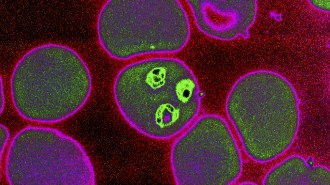 Health & Medicine
Health & MedicineA malaria vaccine with live parasites shows promise in a small trial
After taking anti-malarial drugs after each vaccine dose to clear the parasite from the body, volunteers appeared well-protected from infection.
-
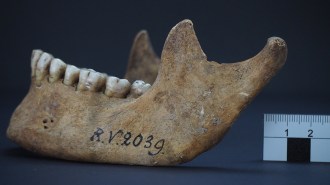 Humans
HumansAncient human bones reveal the oldest known strain of the plague
The earliest known plague strain emerged about 7,100 years ago and was less contagious as the one behind Black Death — but was still deadly.
-
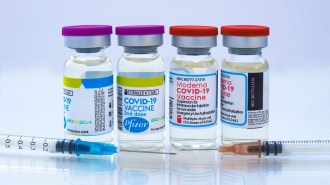 Health & Medicine
Health & MedicineHow COVID-19 vaccines were made so quickly without cutting corners
Usually it takes years to get both test results and FDA authorization, but speedy spread of the virus and eager volunteers shrunk the shots’ timeline.
By Rachel Lance -
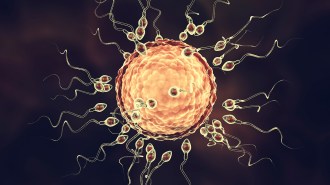 Genetics
GeneticsEmbryos appear to reverse their biological clock early in development
A new study suggests that the biological age of both mouse and human embryos resets during development.
-
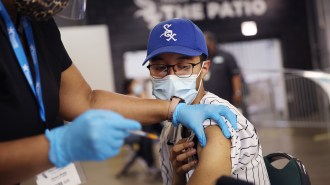 Health & Medicine
Health & MedicineThe benefits of COVID-19 mRNA vaccines outweigh the risk of rare heart inflammation
A CDC group says the benefits of the Pfizer and Moderna shots outweigh the risk of myocarditis and pericarditis in adolescents and young adults.
-
 Health & Medicine
Health & MedicineHow relocating musicians can reduce COVID-19 risk at concerts
Based on simulations of how air flows across a stage, the Utah Symphony rearranged where its musicians sit and boosted ventilation.
-
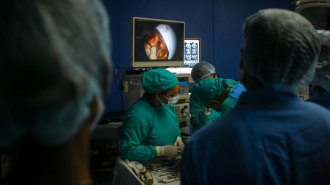 Health & Medicine
Health & MedicineHow COVID-19 created a perfect storm for a deadly fungal infection in India
Amid the chaos of the COVID-19 pandemic, numbers of rare but dangerous “black fungus” infections have skyrocketed in the country.
By Pratik Pawar -
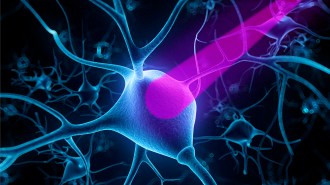 Health & Medicine
Health & MedicineControlling nerve cells with light opened new ways to study the brain
A method called optogenetics offers insights into memory, perception and addiction.
-
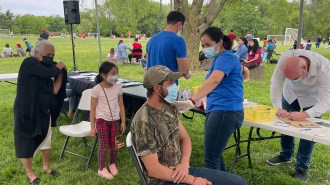 Health & Medicine
Health & MedicineHow one medical team is bringing COVID-19 vaccines to hard-to-reach Hispanic communities
Unidos Contra COVID’s Spanish-speaking volunteers go to where Philadelphia’s Hispanic people gather, giving shots and addressing concerns one-on-one.
-
 Chemistry
ChemistryMany cosmetics contain hidden, potentially dangerous ‘forever chemicals’
Scientists found signs of long-lasting PFAS compounds in about half of tested makeup products, especially waterproof mascaras and lipsticks.
-
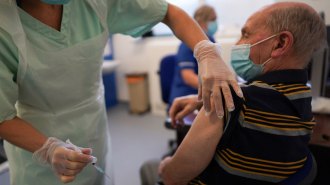 Health & Medicine
Health & MedicineHere’s what you should know about COVID-19 vaccine booster shots
No one knows if coronavirus booster shots will be necessary. But researchers are working on figuring that out.